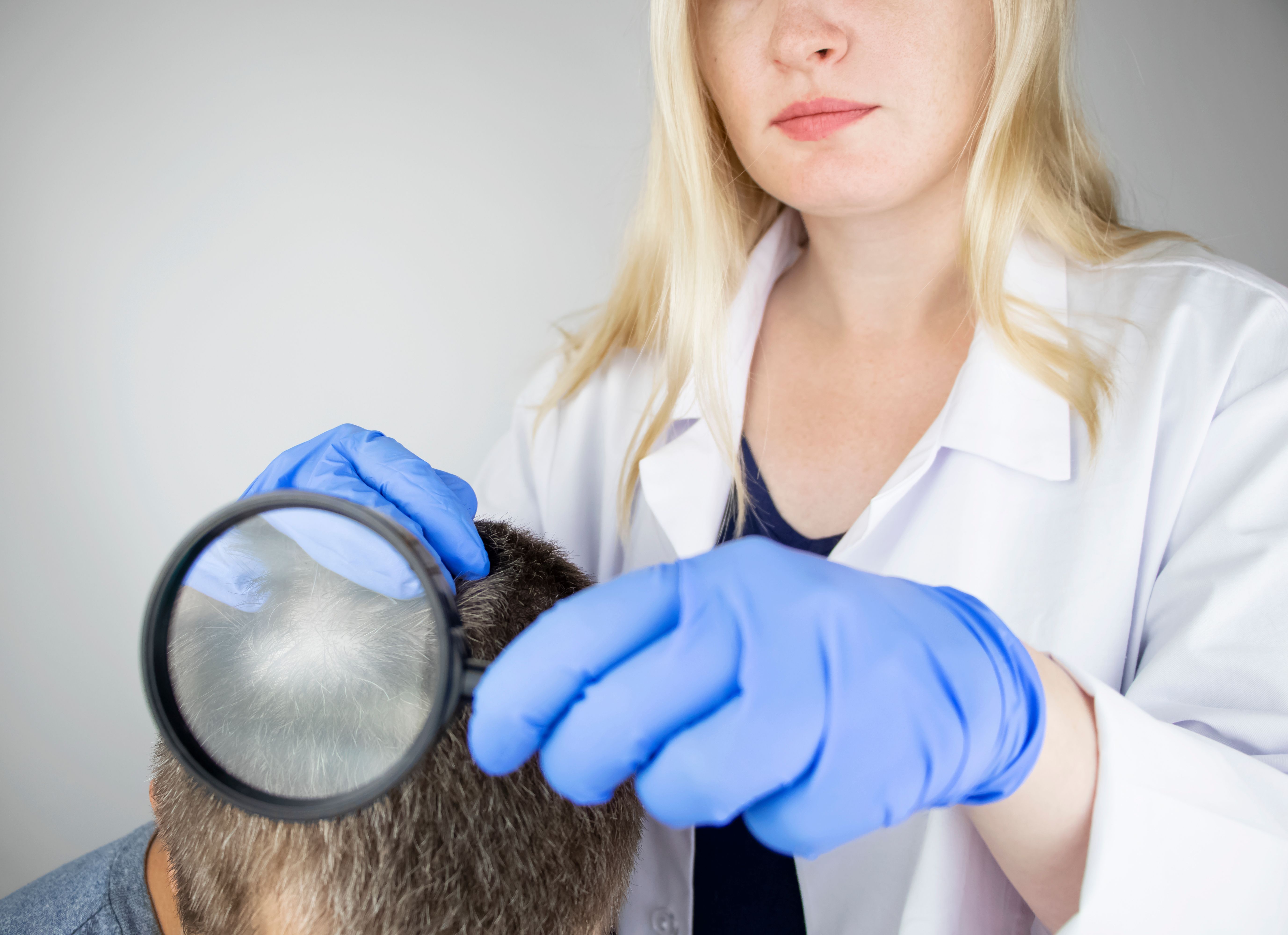- Center on Health Equity & Access
- Clinical
- Health Care Cost
- Health Care Delivery
- Insurance
- Policy
- Technology
- Value-Based Care
Deuruxolitinib Demonstrates Efficacy, Safety in Adults With Alopecia Areata
Deuruxolitinib showed significant efficacy and safety in hair regrowth stimulation among adult patients with alopecia areata, particularly in those with moderate to severe hair loss.
Deuruxolitinib showed significant efficacy and safety in hair regrowth stimulation among adult patients with alopecia areata, particularly in those with moderate to severe hair loss. | Image Credit: Siniehina - stock.adobe.com

Deuruxolitinib demonstrated efficacy and safety when stimulating hair regrowth among adult patients with alopecia areata, according to a study published in Journal of the American Academy of Dermatology.1
Standard-of-care treatments for alopecia include topical, intralesional, systemic corticosteroids, and noncorticosteroid systemic immunosuppressive therapies like methotrexate, cyclosporine, and topical contact immunotherapy. Therapeutic strategies have shifted to focus on Janus kinase (JAK) inhibitors based on their involvement of interferon-g and IL-15 in alopecia areata pathobiology.
The FDA approved deuruxolitinib, an oral JAK1 and JAK2 inhibitor, as a first-line treatment for adults with moderate to severe alopecia areata in July 2024.2 Given the limited availability of effective treatments for hair loss and regrowth, the approval of deuruxolitinib represents a significant advancement for patients.
Researchers conducted the THRIVE-AA1 trial (NCT04518995), a randomized, double-blinded, placebo-controlled study across 72 treatment sites in the US, Canada, and Europe between November 2020 through April 2022.1 The study included a 28-day screening period, a 24-week treatment period, and an optional open-label extension or 4-week posttreatment follow-up period.
The study enrolled 706 patients who were randomized to deuruxolitinib 8 mg twice daily (n = 351), deuruxolitinib 12 mg twice daily (n = 215), or placebo (n = 140). Participants were primarily White (68.6%) and women (61.9%), with a median age of 37 years.
Both doses of deuruxolitinib resulted in higher proportions of patients achieving a Severity of Alopecia Tool (SALT) score less than or equal to 20 after 24 weeks vs placebo (8 mg, 29.6%; 12 mg, 41.5% vs placebo, 0.8%). Further, the key secondary outcomes were achieved with significant improvements among both deuruxolitinib doses vs the placebo. By week 24, satisfaction of hair patient-reported outcome for the 8-mg cohort was 42.1%, and the 12-mg cohort, 53.0%; for placebo, this was 4.7%.
Treatment with deuruxolitinib resulted in significantly higher SALT scores at weeks 8, 12, 16, and 20 compared with placebo. Furthermore, at 24 weeks, a greater proportion of patients treated with 8-mg (20.8%) or 12-mg (34.5%) twice-daily deuruxolitinib achieved a SALT score of 10 or higher compared with the placebo group.
Most treatment-emergent adverse events (TEAEs) reported were of mild to moderate severity, consistent with the known profile of oral JAK inhibitors. Discontinuations due to TEAEs were more frequent in the 8-mg and 12-mg deuruxolitinib groups at 2.6% and 2.8%, respectively, compared with 1.4% in the placebo group.
The study was limited by the short duration of the double-blind period and restrictions due to the COVID-19 pandemic. Therefore, future studies are necessary to assess long-term safety and efficacy, as well as the durability of hair regrowth and the potential for alopecia areata recurrence after treatment discontinuation.
“Treatment with deuruxolitinib resulted in significant scalp hair regrowth as early as 8 weeks, which continued throughout the 24 week study period, with patient satisfaction reflecting the hair regrowth observed,” concluded the study authors.
References
- King B, Senna MM, Mesinkovska NA, et al. Efficacy and safety of deuruxolitinib, an oral selective Janus kinase inhibitor, in adults with alopecia areata: results from the phase 3 randomized, controlled trial (THRIVE-AA1). J Am Acad Dermatol. Published online July 1, 2024. doi:10.1016/j.jaad.2024.06.097
- Santoro C. FDA approves deuruxolitinib for alopecia areata. AJMC®. July 26, 2024. Accessed November 27, 2024. https://www.ajmc.com/view/fda-approves-deuruxolitinib-for-alopecia-areata
